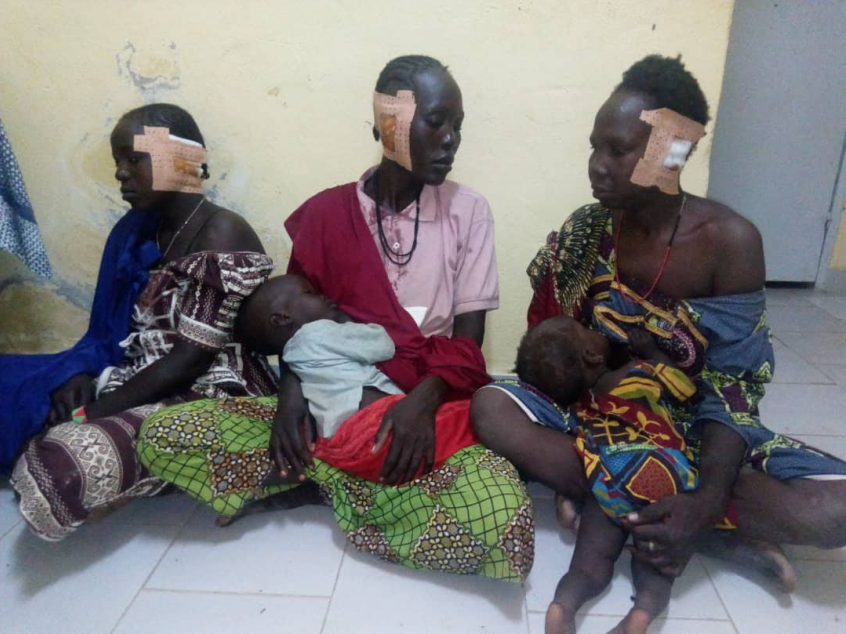
The barbarism of Boko Haram, an Islamist militant group, has reached new heights after reports of women having their ears chopped off during an attack on a Christian village.
Local media reports that Boko Haram fighters stormed the Christian village of Kalagari in northern Cameroon on July 29, taking eight women hostage and cutting off their ears before releasing them.
The women are being treated for their injuries but Open Doors UK said it was not clear whether all of the abducted women had been released.
The militant group has terrorised Christian communities in Nigeria for the last decade and has now splintered and spread its violent ideology into Cameroon, Niger and Chad.
It is notorious for abducting women and girls, most famously 276 largely Christian schoolgirls from Chibok in 2014, but there have been others.
Leah Sharibu is the only girl still in captivity from a group of 110 kidnapped from their school in Dapchi, Yobe state, last year by Boko Haram faction the Islamic State West Africa Province (ISWAP). She continues to be held because of her refusal to convert to Islam.
Unicef last year estimated that Boko Haram had kidnapped 1,000 children in north-east Nigeria between 2013 and 2018. Many children, especially girls, have tragically been used by the group as suicide bombers.
Open Doors UK said the reports coming from Cameroon reflect a "new type of atrocity' for the group.
Nigeria is number 12 on the Open Doors World Watch List of top 50 countries where persecution against Christians is the greatest.
The Boko Haram insurgency has been going on since 2009, triggering a humanitarian crisis that has left nearly 10 million people in the Lake Chad Basin in need of humanitarian assistance, with high levels of hunger and malnutrition, according to the UN Office for the Coordination of Humanitarian Affairs.
Open Doors is supporting those affected by Boko Haram and other factions through emergency aid such as like food, medicine, shelter, as well as trauma care and persecution preparedness training.













